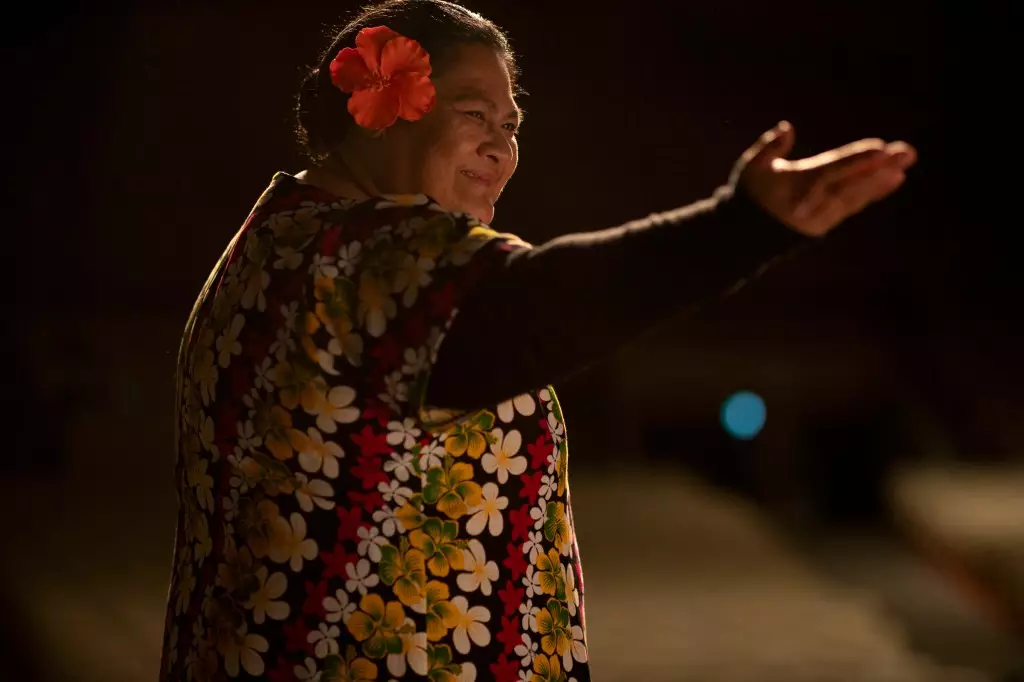In an era saturated with formulaic storytelling, Miki Magasiva’s debut film, ‘Tīnā,’ stands out as a passionately crafted narrative that refuses to conform. At its core, the film exemplifies the profound importance of authentic representation, particularly for marginalized communities often overlooked in mainstream cinema. The film’s success, both critically and commercially, underscores a shifting cultural landscape that begins to acknowledge storytelling rooted in genuine experiences. This film isn’t merely entertainment; it’s a bold reclamation of cultural identity that challenges the homogenizing tendencies of global media.
Challenging the Status Quo
What makes ‘Tīnā’ compelling is its unapologetic depiction of issues that many films shy away from addressing—grief, racial tension, and intergenerational trauma. The story of Mareta Percival, poignantly portrayed by Anapela Polataivao, offers a window into the struggles faced by Pacific communities in the diaspora, highlighting the resilience born from cultural traditions and personal loss. By doing so, the film questions the superficial narratives often peddled by Hollywood, pushing instead for stories that interrogate societal structures and empower underrepresented voices. ‘Tīnā’ confronts viewers not with easy comfort but with raw, unfiltered emotion, forcing audiences to reckon with uncomfortable truths.
Reclaiming Space in Global Cinema
While the film’s home base is New Zealand, its international trajectory signals something vital for the future of cinema—a recognition of the value found in diverse, community-driven stories. The fact that ‘Tīnā’ has already amassed over $10 million in box office revenue across Australia, New Zealand, and the Pacific indicates not only its artistic merit but also a growing appetite worldwide for narratives that break the conventional mold. The planned U.S. theatrical release during Labor Day weekend demonstrates a strategic push to take this film into mainstream consciousness, emphasizing that stories rooted in authenticity are universally compelling.
The Power of Cultural Resonance
Fundamentally, ‘Tīnā’ exemplifies the potential for cinema to serve as a bridge—connecting disparate audiences through shared human experiences. It is a reminder that stories from Pacific communities, often marginalized or sidelined, possess the universal qualities of growth, healing, and resilience. Such films challenge the often narrow scope of what is considered “worthy,” advocating for a more inclusive cultural dialogue. Magasiva’s creation is both a celebration and a critique: it celebrates the beauty of Pasifika traditions while critiquing the systemic invisibility that still plagues minority narratives in the global film industry.
Authenticity as a Activist Force
In a broader context, ‘Tīnā’ reminds us of the importance of supporting films that prioritize authenticity over commercialization. It’s easy to fall into the trap of tokenism or superficial diversity, but this film demonstrates how genuine storytelling rooted in lived experiences can resonate deeply, sparking conversations beyond the cinema. The film’s success should serve as a wake-up call to industry gatekeepers: audiences crave real stories that challenge stereotypes and foster empathy. Ultimately, ‘Tīnā’ is more than a film; it’s a movement toward valuing cultural authenticity as a powerful catalyst for social change.


Leave a Reply